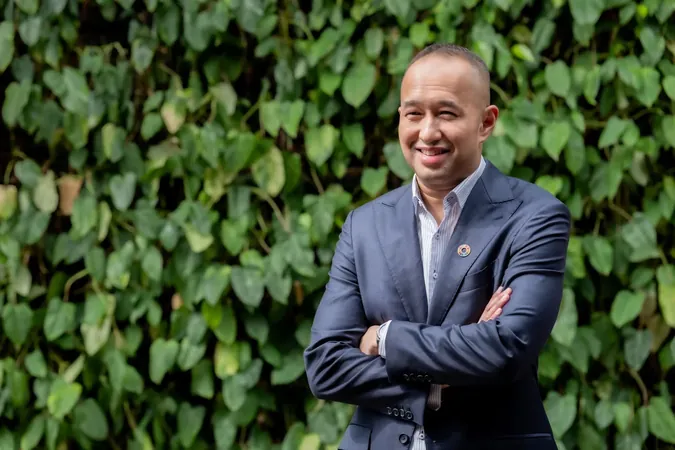
Young Couples Get a Boost in Home Buying: Are They Ready for the Risks?
2025-03-28
Author: Jia
Young Couples Get a Boost in Home Buying: Are They Ready for the Risks?
In an effort to make homeownership more accessible, the Singapore government has announced significant changes to the deferred income assessment scheme aimed at assisting young couples. This initiative is expected to help those without current income to enter the resale market, which has been seeing soaring property prices. However, analysts warn that this new approach comes with its own set of risks.
A Game Changer for First-Time Buyers?
The revamped scheme shifts the assessment focus from current income to future income, providing a crucial lifeline for young couples who may not yet be financially established. According to Christine Sun, chief researcher at OrangeTee, with an adjusted assessment timeframe, buyers can potentially secure higher loan amounts. This newfound confidence allows young couples to consider pricier flats despite their current financial situations.
Eugene Lim, a key executive officer at ERA Singapore, notes that the relaxed eligibility criteria make Build-To-Order (BTO) flats more accessible. This change is encouraging young couples to kickstart their financial planning for the long term. If their expected income increases, they may be able to purchase larger homes—an appealing prospect for those looking to start families.
However, while the potential for future income growth sounds promising, one expert likens the situation to guessing a “blind box.” Households using the deferred assessment have about three years post-application to figure out their financial futures, and many may opt for flats with extended construction timelines to give themselves more time to save.
Unexpected Pitfalls?
While the deferred assessment opens doors, it can also backfire if couples miscalculate their future earnings. Analysts warn that young buyers looking to secure BTO flats could end up over-extending themselves financially. If couples commit to properties beyond their means, they risk facing significant financial strain, especially if a recession delays their employment opportunities after graduation.
There are also concerns about the emotional consequences of a purchase made too soon. Relationships can falter, and problems may arise in co-owning mortgage responsibilities if the partnership doesn't last until the flat is ready.
In response to queries about cancellation rates for the deferred income scheme, the Housing and Development Board (HDB) reported that cancellation rates among these buyers are on par with those not using the scheme. Still, couples who find themselves unable to proceed will lose a percentage of their down payment, further complicating their situation.
Young Couples Speak Up: Are They On Board?
Current students express mixed feelings about the revised scheme. For example, final-year student Ms. Huang, who had previously applied for a BTO flat, believes that the scheme could lead to larger loan amounts without the associated grants. She preferred stability in her financial planning over uncertainty stemming from a future income assessment.
Another student, Jesslyn Tan, indicated that while the scheme could benefit long-term couples, it is less relevant for couples in newer relationships who are not ready to settle down. Her focus remains on career planning for now, demonstrating a broader trend among younger individuals prioritizing personal growth over immediate homeownership.
Conclusion: Is This the Right Time for Young Buyers?
While the deferred income assessment scheme could provide an entry point into the housing market for young couples, it’s crucial to weigh the benefits against potential risks. As financial landscapes are tricky and unpredictable, prospective buyers should tread carefully. The government has pointed out that a variety of housing options await those interested, so there’s no need to rush into any commitment. The future of housing for young couples remains a topic of discussion, as they navigate the delicate balance between desire and financial feasibility.



 Brasil (PT)
Brasil (PT)
 Canada (EN)
Canada (EN)
 Chile (ES)
Chile (ES)
 Česko (CS)
Česko (CS)
 대한민국 (KO)
대한민국 (KO)
 España (ES)
España (ES)
 France (FR)
France (FR)
 Hong Kong (EN)
Hong Kong (EN)
 Italia (IT)
Italia (IT)
 日本 (JA)
日本 (JA)
 Magyarország (HU)
Magyarország (HU)
 Norge (NO)
Norge (NO)
 Polska (PL)
Polska (PL)
 Schweiz (DE)
Schweiz (DE)
 Singapore (EN)
Singapore (EN)
 Sverige (SV)
Sverige (SV)
 Suomi (FI)
Suomi (FI)
 Türkiye (TR)
Türkiye (TR)
 الإمارات العربية المتحدة (AR)
الإمارات العربية المتحدة (AR)